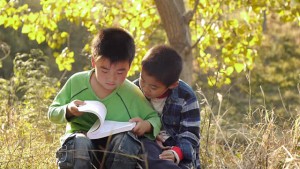 I grew up in a household in which sarcasm came naturally. By the time I left my home sarcasm was imprinted on every brain cell and leaked out of every sentence I spoke. Out in the world I quickly discovered that as a method of communication, sarcasm rarely accomplished what I thought it would. It didn’t break the ice, diffuse tension, make a point well, win a debate, and it didn’t connect me to others. Most often it damaged relationships and left a wide burn zone around me on the other side of which were a growing number of people who doubted my sincerity and feared talking to me.
I grew up in a household in which sarcasm came naturally. By the time I left my home sarcasm was imprinted on every brain cell and leaked out of every sentence I spoke. Out in the world I quickly discovered that as a method of communication, sarcasm rarely accomplished what I thought it would. It didn’t break the ice, diffuse tension, make a point well, win a debate, and it didn’t connect me to others. Most often it damaged relationships and left a wide burn zone around me on the other side of which were a growing number of people who doubted my sincerity and feared talking to me.
The danger of sarcasm is that it divides and hurts.
Rude and Condescending
The turning point came when someone called me rude and condescending and I painfully faced the recognition that I was. And, I didn’t know how to stop it at once. Rather, I struggled, like a person struggling to quit smoking; I wrestled daily, sentence by sentence, to strip mischief from my communication and suppress my sarcastic reflexes.
A Time And Place for Everything
Sometimes I tell myself that there is a time and place for everything and that suppressed sarcasm can come out safely when I am among close friends, or with colleagues. But that’s a lie I tell myself when I feel too lazy to look for a more beautiful way to talk about what is truly important. In stepping down my sarcasm I have come to witness people’s feelings being lacerated by the kind of sarcasm I used to be an expert at. It brings tears to my eyes now, and a deep, dull, sick feeling when I witness it, or when I feel it wanting to vomit out of my own mouth again after all these years.
To Tear Flesh Off
The origin of the word sarcasm, in the Greek language, means to tear flesh, and generally, definitions of the word point to the intent to hurt. Sometimes I hurt when I read message boards and comments sections on the internet and I remain quiet, not because I have nothing to say, but because I have not yet found a way to express it that is consistent with what I believe I value: kindness.
Our amazingly beautiful world of technology has brought so much to us in terms of new ways to connect and communicate, and yet some of our most important skills related to its use are suffering, such as the practice of genuine thoughtfulness, old fashioned decency, listening, and responding to other points of view with grace, subtlety and finesse.
Edward Viljoen is author of The Power of Meditation: an ancient technique to access your inner power
( article reprinted from www.edblogword.blogspot.com )











